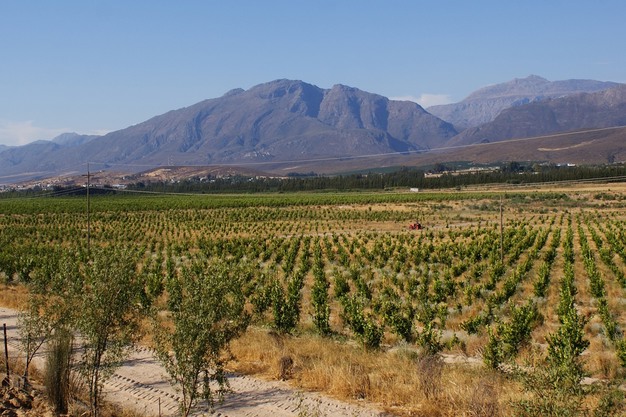A South African exporter supplying the Middle East and Indian subcontinent expresses scepticism of the oft-repeated narrative of plumb empty citrus markets in the Northern Hemisphere at the start of South Africa’s citrus season. That turned out to be, he proposes, wishful thinking.
“In our markets, Egypt was supposed to finish in June instead of September when they normally finish. And then, after all that, they only finished in August. So, there was a lot of misinformation,” asserts the exporter on condition of anonymity. “A lot of people were hoping the story would be true, but it wasn’t.”
So now, he says, in the Middle East, in India, and in Bangladesh, citrus prices are “pretty much at the lowest point they can be. We’re all very concerned by it, and we can really see the markets are already overloaded with everything: easy peelers, oranges, lemons. When we heard about the USA’s increased tariffs issue, we knew that our markets were going to get overloaded with fruit. And that’s exactly what happened. The Middle East generally takes 20 to 25% of the oranges and easy peelers and 50% of the lemons. When anything happens with the rest of the world, it kind of becomes a dumping ground. That’s what we’re facing this year.”
The rug has been pulled out from under the feet of Western Cape citrus producers with large exposure to the United States, after years of tariff-free access.
 © Carolize Jansen | FreshPlaza.com Citrus orchards in Citrusdal, Western Cape
© Carolize Jansen | FreshPlaza.com Citrus orchards in Citrusdal, Western Cape
“If you take the Middle East and Indian markets,” the exporter continues, “it’s already been difficult for us since 2022 because that’s when Ukraine got invaded. And then, because of that, shipping became very difficult in the Mediterranean. Since October 2023, Middle Eastern importers’ confidence has taken a big hit due to the Israel-Gaza war. Buyers have become much more conservative.”
Shipping to the port of Jeddah in Saudi Arabia and Aqaba in Jordan has become very difficult, and the result is bottlenecks in the ports of Dubai, Dammam, Qatar, and Bahrain. “Actually, though,” he remarks, “the South African ports are not working too badly this year.”
“It’s not a great time in the food business at the moment.”
Observers of the South African citrus industry would have noticed the large jump in its export estimate: 171.1 million 15kg cartons are now 189.7 million cartons. “On the grower estimation front, there’s been a bit of a mess-up this year,” he asserts. It’s one more perplexing element in a season of which, he observes, “we can’t make head or tails”.
His anxieties are widely shared in the citrus sector, fuelled not only by South Africa’s citrus expansion, but also by that of Egypt and of China. “The industry is pushing this massive growth, and I’m trying to figure out: where are we going to sell all that fruit? Citrus consumption in the Northern summer is not keeping pace, and that’s what’s worrying me,” confides an exporter whose focus is on the Far East. “The planting of late mandarins and lemons has been insane. The bigger growers can handle it, but the smaller growers are going to struggle when the bottom falls out of the market,” he frets.
“I don’t think South Africa has understood the consequences of its 260 Vision [the industry strategy to export 260 million cartons by 2032] or where it’s going to go, especially with the US, especially with all these issues all over the place. It’s just a very, very difficult season, and everybody’s losing money. It’s not a great time in the food business at the moment.”
Source: The Plantations International Agroforestry Group of Companies
